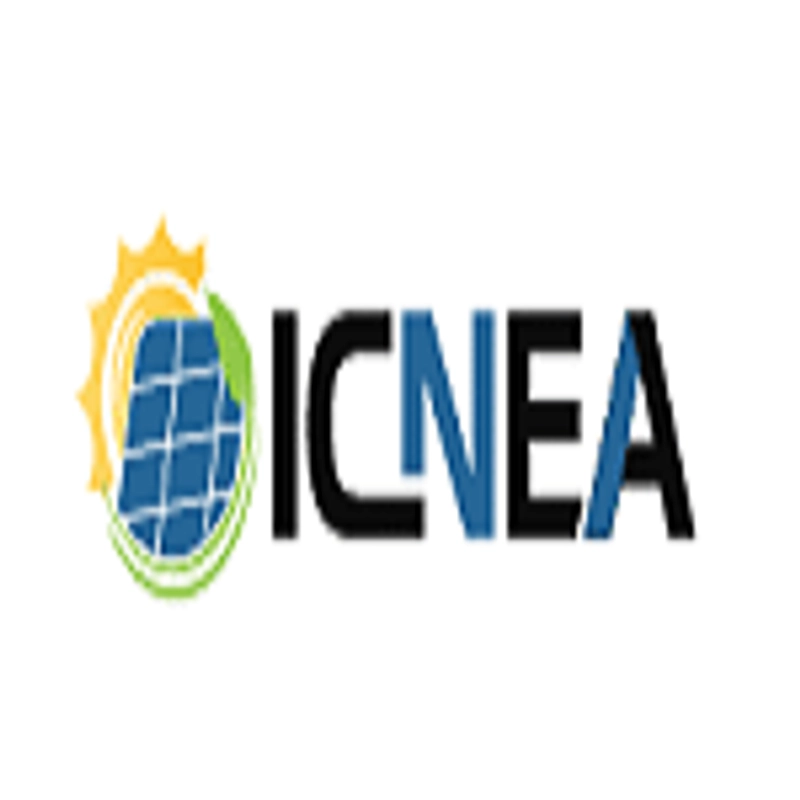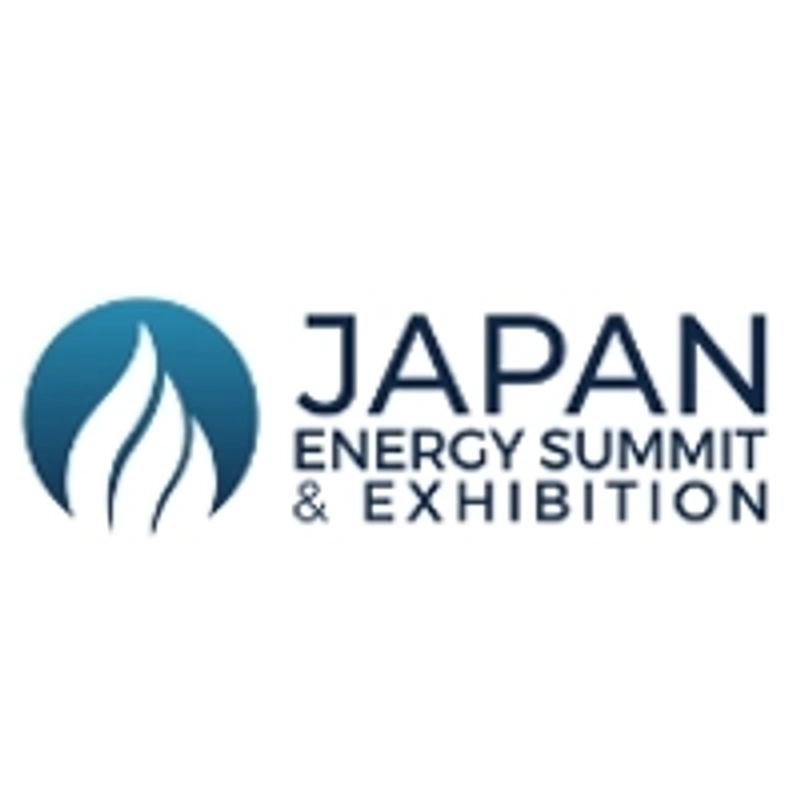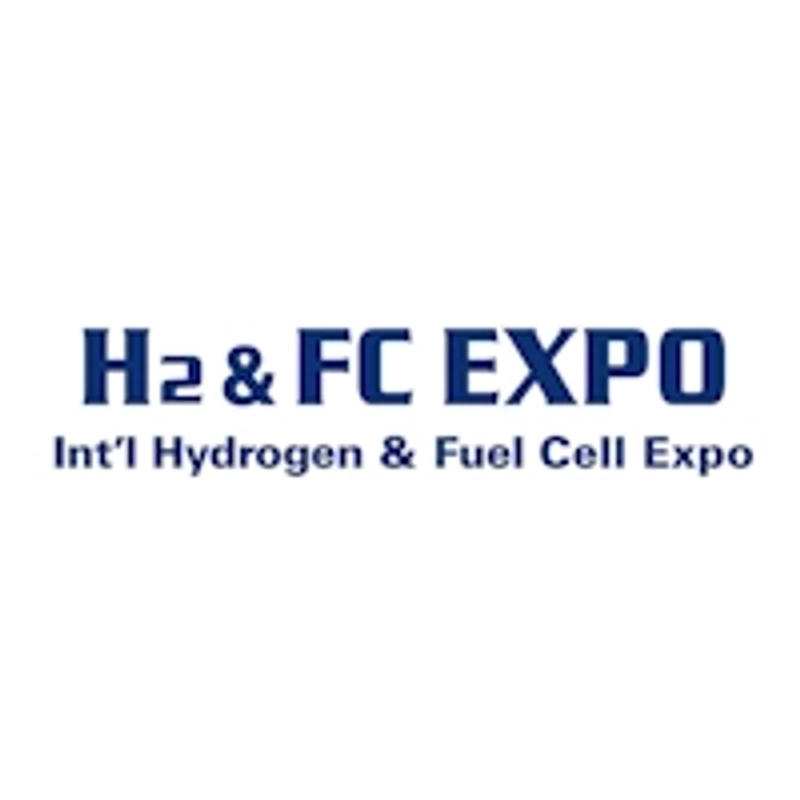Energy Production & Transportation Events in Tokyo


International Conference on New Energy and Applications
International Conference on New Energy and Applications (ICNEA): Advancing the Frontiers of Energy Innovation
As the global demand for sustainable and clean energy continues to rise, the International Conference on New Energy and Applications (ICNEA) has emerged as a crucial platform for sharing knowledge, sparking innovation, and encouraging cross-sector collaboration. Held annually, ICNEA attracts scholars, industry leaders, and policy influencers from around the world, all committed to shaping the future of new energy technologies and their practical applications.
With the dual focus on academic excellence and real-world solutions, the conference supports both theoretical discussions and hands-on insights into cutting-edge energy advancements.
A Premier Global Forum for New Energy Innovations
The ICNEA aims to become one of the world’s leading international conferences for presenting novel and fundamental advances in the field of new energy and applications. Its multidisciplinary agenda spans renewable technologies, smart grids, storage systems, green fuels, hydrogen innovation, and more.
The conference provides a vibrant forum where:
Researchers can present peer-reviewed papers and exchange methodologies
Practitioners showcase case studies and field applications
Government officials and regulators explore policy frameworks that support adoption
Private companies and investors discover commercialization opportunities
By bridging academia, industry, and governance, ICNEA fosters an ecosystem where ideas evolve into impactful technologies.
Core Themes of ICNEA: What the Conference Explores
Spanning several scientific disciplines and technical domains, the ICNEA highlights new energy solutions that contribute to environmental, economic, and social sustainability. Some of the major conference tracks include:
1. Renewable Energy Systems
Photovoltaic (PV) technologies
Wind and hydro energy systems
Biomass and biofuel advancements
Geothermal energy conversion techniques
2. Energy Storage and Grid Integration
Battery technologies (Li-ion, solid-state, flow batteries)
Supercapacitors and hybrid storage
Smart grid architecture and resilience
Demand-side management and load forecasting
3. Clean Fuels and Hydrogen Technology
Hydrogen production and fuel cells
Synthetic fuels and ammonia
Clean combustion systems
Fuel processing and infrastructure
4. Energy Applications and Industrial Innovation
Electric vehicles (EVs) and mobility solutions
Green HVAC and building energy management
Off-grid and rural electrification projects
AI and IoT applications in energy management
Key Features That Make ICNEA Stand Out
The success and growth of the ICNEA can be attributed to its thoughtful programming, interactive sessions, and participant diversity. Here are some of its most valuable features:
Keynote Presentations
ICNEA invites prominent experts in energy science, policymaking, and innovation to deliver thought-provoking keynote addresses that define the conference's direction each year.
Paper Presentations and Peer Reviews
Researchers are encouraged to submit original contributions, with accepted papers presented during technical sessions. Each submission undergoes rigorous peer review, ensuring academic quality.
Networking Opportunities
With in-person and virtual networking sessions, ICNEA ensures meaningful interactions between:
Energy tech startups and investors
Students and senior researchers
Academic institutions and private R&D departments
Engineers and policymakers
Workshops and Industry Panels
Practical workshops, sponsored by corporate partners or universities, offer skills-based learning. Simultaneously, panel discussions tackle real-world issues like market access, regulation, and energy equity.
Benefits of Participating in ICNEA
Attending ICNEA can offer several benefits for participants from various sectors. Below is a detailed look at what makes this event indispensable for professionals and scholars alike:
For Academics:
Present research in front of an international audience
Receive feedback from subject matter experts
Publish in prestigious conference proceedings or journals
Build academic collaborations across borders
For Industry Professionals:
Discover new technologies and market trends
Connect with researchers working on scalable solutions
Form R&D partnerships with universities and labs
Learn about upcoming policies and incentives
For Policymakers:
Understand industry concerns and technical limitations
Engage with innovators creating impactful energy tools
Participate in roundtables on regulations and global energy policy
Support frameworks for energy justice and sustainability
A Collaborative Environment that Fosters Innovation
One of the hallmarks of the ICNEA is its emphasis on direct communication between stakeholders. Unlike traditional academic events, this conference encourages informal interactions, roundtable discussions, and thematic networking dinners.
Here are some of the cooperative opportunities the conference fosters:
University-to-University collaboration for international research grants
Public-private partnerships for deploying new energy pilots
Joint ventures between startups and energy conglomerates
Mentoring programs connecting young professionals with seasoned experts
Such face-to-face interactions are invaluable in building trust and long-term partnerships, especially in a rapidly evolving field like energy.
Looking Toward the Future of Energy
The importance of new energy and applications cannot be overstated. With nations worldwide committing to net-zero emissions, the pace of energy innovation must match ambitious climate goals. ICNEA is more than a conference—it is a launchpad for technologies, discussions, and collaborations that will define the coming decades.
As such, ICNEA aligns with the following global priorities:
United Nations Sustainable Development Goal 7: Affordable and clean energy
Paris Climate Agreement: Accelerating low-carbon transitions
Green economic recovery plans post-COVID-19
Global energy access initiatives in underserved regions
Why ICNEA Matters
The International Conference on New Energy and Applications is not just a technical gathering—it’s a catalyst for change. By assembling thinkers and doers from diverse disciplines, ICNEA advances the global energy dialogue and empowers the development of practical, scalable, and sustainable energy solutions.
In Summary, ICNEA offers:
A multidisciplinary platform for emerging technologies
Peer-reviewed insights into the future of energy systems
Access to leaders shaping energy policy and innovation
A space for cultivating long-term partnerships and R&D ventures
Whether you are an energy researcher, industrial innovator, policy advocate, or student, ICNEA offers unmatched value in connecting you with the brightest minds and the latest breakthroughs in new energy and its applications.


International Conference on Power Systems and Electrical Technology
PSET: Advancing Innovation in Power Systems Engineering and Technology
In an era defined by the increasing complexity of global energy demands and the shift toward sustainable power infrastructure, the Power Systems Engineering and Technology Conference (PSET) emerges as a crucial platform for collaboration, innovation, and technical advancement. Designed specifically for electrical engineers, researchers, and academic professionals, PSET offers a dynamic space to explore the frontiers of power systems engineering.
Bringing together experts, scholars, and industry leaders from across the globe, this conference is not just an academic gathering — it's a convergence of real-world challenges and forward-thinking solutions. Through keynote presentations, technical sessions, and open forums, PSET fosters the exchange of knowledge that is essential for addressing the evolving needs of modern power systems.
A Global Forum for Research and Collaboration in Power Systems Engineering
At its core, PSET is structured to encourage deep discussions and the dissemination of cutting-edge research. The conference provides a comprehensive agenda that spans a wide range of topics within the power systems domain, making it one of the most relevant and inclusive events for those shaping the future of energy.
Key Themes and Topics Include:
Smart grids and intelligent energy networks
Renewable energy integration and system stability
Power system protection, control, and automation
Grid resilience, reliability, and security
Power electronics and advanced transmission technologies
Energy storage, forecasting, and demand response
Electric vehicles and their impact on power systems
Each of these topics addresses the pressing issues that modern engineers face as power systems evolve to accommodate distributed generation, climate considerations, and digital transformation.
Keynote and Invited Talks from Leading Scholars
One of the major highlights of the PSET conference is its lineup of keynote and invited talks. These sessions are delivered by world-renowned scholars and thought leaders, offering attendees a chance to learn from the most influential figures in the field of power systems engineering.
What Attendees Can Expect from Keynote Sessions:
Insightful analysis of emerging technologies and research trends
Global perspectives on grid modernization and policy frameworks
Real-world case studies demonstrating innovative system design
Academic and industrial viewpoints on bridging research with application
The diversity and expertise of the speakers ensure that every participant — whether a student, professor, or practicing engineer — gains exposure to high-impact ideas and future-ready strategies.
Technical Sessions and Interactive Discussions
Beyond keynote talks, PSET offers robust technical sessions that provide space for researchers to present their work, receive feedback, and engage with peers in meaningful discussion. These sessions form the academic backbone of the conference, covering both theoretical models and applied innovations.
Conference Sessions Cover:
Peer-reviewed paper presentations
Technical panel discussions on trending challenges
Cross-disciplinary sessions on hybrid energy systems
Poster presentations from emerging researchers and graduate students
The inclusive structure of PSET encourages participation from all levels of expertise, making it a valuable experience for established researchers as well as early-career professionals looking to build their presence in the field.
Networking and Collaboration Opportunities
What makes PSET particularly impactful is the emphasis on collaboration and cross-pollination of ideas. The conference is structured to promote interaction between academia, industry, and government sectors, ensuring that discussions go beyond theory and into practice.
Opportunities for Engagement:
Q&A panels with experts from utilities and research labs
Dedicated networking sessions and informal meetups
Opportunities to collaborate on funded research and joint publications
Access to cutting-edge tools, platforms, and case studies
For professionals looking to expand their networks, identify project collaborators, or explore international partnerships, PSET is the ideal venue.
Building the Future of Energy Through Knowledge Exchange
As the energy landscape continues to shift toward decentralization, digitization, and decarbonization, the role of electrical engineers becomes even more critical. Conferences like PSET offer more than academic prestige — they provide the intellectual infrastructure needed to tackle the energy transition with innovation and resilience.
PSET Supports Sustainable Development By:
Promoting research that addresses energy access and grid equity
Encouraging interdisciplinary collaboration for smarter infrastructure
Supporting capacity building in power engineering education and practice
Aligning engineering innovation with global climate goals
Through a rich program of presentations, debates, and strategic conversations, PSET empowers its attendees to become active contributors to the design and maintenance of sustainable power systems around the world.
Who Should Attend PSET?
PSET is tailored for a wide range of professionals working in or adjacent to the power systems field. Its content, structure, and reach make it relevant to:
Electrical engineers and system designers
Academic researchers and university faculty
PhD students and postdoctoral fellows
Utility operators and energy policy experts
Technology developers and solution vendors
Government regulators and project funders
No matter your background, if your work involves the generation, distribution, control, or optimization of electric power, PSET offers unmatched value.
PSET as a Launchpad for the Next Generation of Power Systems
The Power Systems Engineering and Technology Conference is more than an academic event. It is a platform for shaping the direction of global energy systems through collaboration, dialogue, and research excellence. As the challenges of energy security, sustainability, and modernization grow more complex, PSET serves as a strategic nexus for the ideas and people who are ready to meet them head-on.
Whether you're presenting groundbreaking research, networking with peers, or absorbing insights from global experts, your participation at PSET places you at the heart of innovation in power systems engineering.


JAPAN ENERGY SUMMIT & EXHIBITION
Nestled amidst the bustling streets of Tokyo, the Japan Energy Summit & Exhibition emerges as a beacon of innovation, sustainability, and collaboration in the global energy arena. Far beyond a mere event, it represents a nexus where visionaries converge to sculpt a future powered by renewable resources and environmental stewardship.
Set against the backdrop of Tokyo Big Sight, this annual gathering serves as a crucible for ideas, technologies, and partnerships that will shape the trajectory of Japan's energy landscape and beyond. With a steadfast commitment to carbon neutrality and energy security, Japan assumes a leadership role in catalyzing the transition to a cleaner, greener future.
Organized by dmg events, a powerhouse in event management, the summit curates a dynamic platform where industry giants and pioneering startups alike showcase their latest advancements. From pioneering LNG technologies to innovative solutions in hydrogen and ammonia, the exhibition floor pulsates with the energy of progress.
What sets the Japan Energy Summit & Exhibition apart is its multifaceted approach to addressing the challenges of the modern energy paradigm. By spotlighting themes such as low-carbon solutions, renewable energies, and resilient supply chains, the summit fosters a holistic dialogue that transcends traditional boundaries.
But perhaps the most unique aspect of this event lies in its emphasis on collaboration and inclusivity. Beyond serving as a meeting ground for industry titans, it offers a stage for emerging players to shine. The Startup Zone provides a launching pad for innovative startups to showcase their disruptive technologies alongside established leaders, fostering an ecosystem of innovation and entrepreneurship.
Moreover, the "Climatetech Challenge" competition adds a thrilling dimension to the summit, inviting participants to tackle pressing environmental challenges head-on. From carbon capture to fuel cell technology, the competition sparks creativity and ingenuity in the pursuit of sustainable solutions.
As the sun sets on another successful summit, Tokyo echoes with the echoes of collaboration, innovation, and possibility. The Japan Energy Summit & Exhibition stands not only as a testament to Japan's commitment to a sustainable future but also as a catalyst for global change in the quest for a cleaner, brighter tomorrow.


International Hydrogen & Fuel Cell Expo (H2&FC Expo)
The H2 & FC EXPO, formerly known as FC EXPO, stands as a premier international trade fair dedicated to hydrogen and fuel cell technologies. Held annually in March at Tokyo Big Sight, one of Japan’s most iconic and technologically advanced exhibition venues, this event has grown to become a vital gathering for stakeholders in the hydrogen energy sector. Since its debut in 2005, the fair has drawn experts, innovators, researchers, manufacturers, and decision-makers from around the globe, offering a unique platform to explore the latest advancements in hydrogen energy solutions.
The recent rebranding of the fair to H2 & FC EXPO, starting with the September 2023 edition in Chiba, underscores the rising significance of hydrogen as a key player in the global transition toward CO2 neutrality. As the world grapples with the challenges of decarbonizing industries, hydrogen has emerged as a versatile and essential energy carrier with the potential to revolutionize various sectors. From transportation and energy generation to industrial applications, hydrogen offers a cleaner alternative to fossil fuels, and its role in reducing greenhouse gas emissions is becoming increasingly critical.
This year’s event brings into focus the most cutting-edge developments in hydrogen and fuel cell technology. Key topics include the production, transport, storage, and utilization of hydrogen. The fair features a comprehensive range of exhibits showcasing innovative solutions that are advancing the hydrogen value chain. Attendees can expect to see the latest advancements in materials and components crucial for hydrogen fuel cells, such as electrolytes, ion exchange membranes, electrodes, catalysts, gas diffusion layers (GDL), and membrane electrode assemblies (MEAs). These components are at the heart of hydrogen fuel cell technology and play a pivotal role in enhancing efficiency and performance.
Equally important are the advanced testing and analytical technologies featured at the fair. With a focus on fuel cell evaluation, the event highlights specialized equipment for assessing the electrical properties of fuel cells, including single cell testing devices, power load equipment, impedance analyzers, and gas analysis instruments. These tools are critical for ensuring that hydrogen fuel cells meet the rigorous standards required for large-scale commercialization and integration into real-world applications.
Beyond the technology displays, H2 & FC EXPO serves as a collaborative space for industry leaders, policymakers, and innovators to discuss and strategize the future of hydrogen energy. The fair offers numerous opportunities for networking, knowledge sharing, and forging strategic partnerships that could propel the hydrogen industry forward. As hydrogen becomes a key component of the global decarbonization strategy, the fair is an invaluable resource for those looking to stay ahead in this rapidly evolving field.
In addition to showcasing the latest technologies and innovations, the event also highlights the significant investments and advancements in hydrogen infrastructure. Japan, a global leader in hydrogen research and development, continues to push the envelope in hydrogen adoption, making the H2 & FC EXPO a critical platform for anyone interested in tapping into the future of clean energy. The fair’s diverse array of exhibitors and participants ensures that attendees gain a comprehensive view of the hydrogen sector, from foundational materials to end-use applications.
H2 & FC EXPO is more than just a trade show—it is a key event in the global energy landscape, aligning with the growing push for sustainable energy solutions. As countries around the world prioritize reducing their carbon footprints, hydrogen fuel cell technologies will play an increasingly vital role in shaping the future of clean energy. This dynamic fair serves as both a showcase of the latest advancements and a catalyst for the collaboration necessary to drive hydrogen adoption on a global scale.